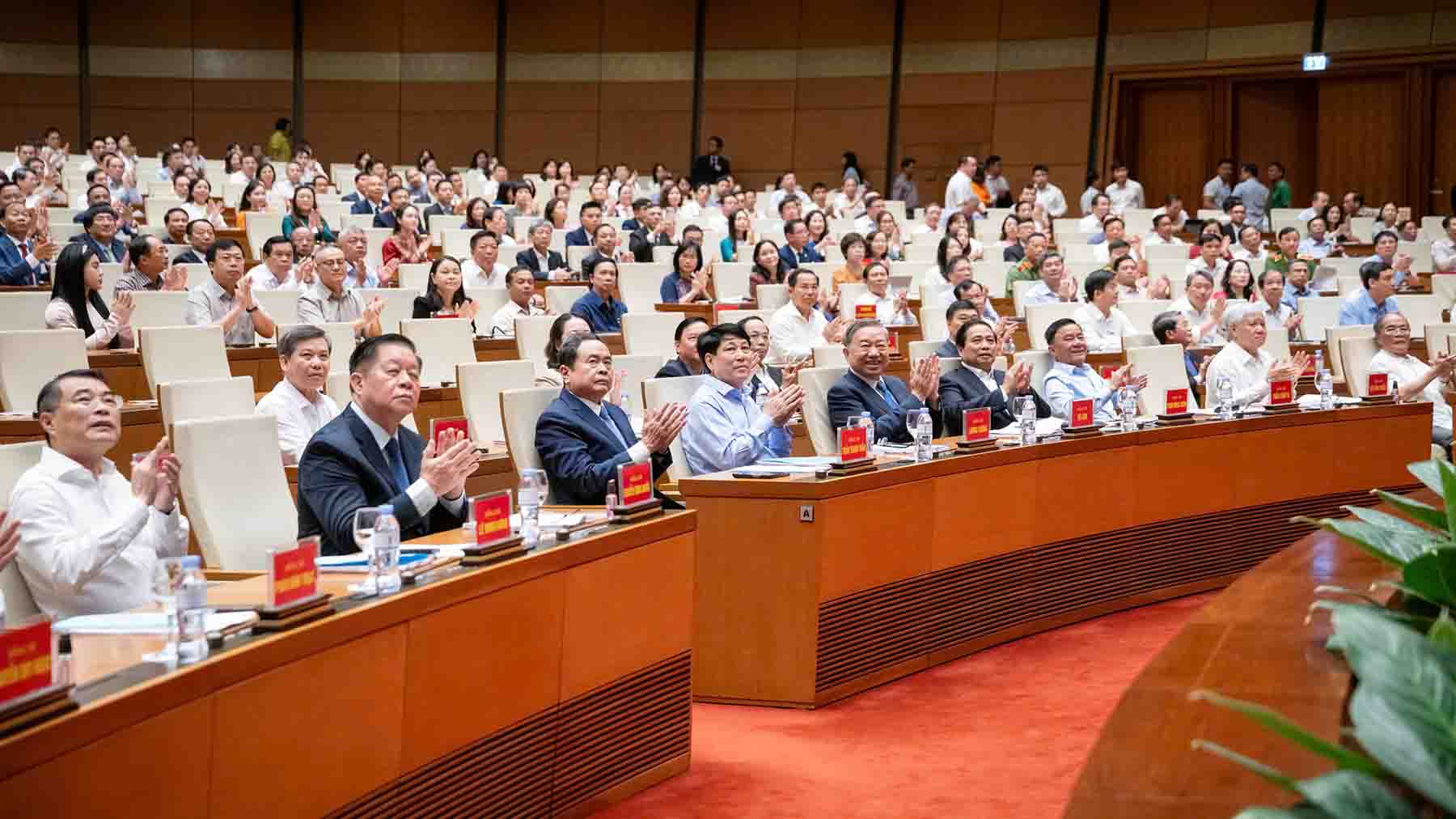Aspiration to rise strongly
On May 18, in Hanoi, the Politburo and the Secretariat held a national conference to disseminate and implement Resolution No. 66-NQ/TW, dated April 30, 2025 of the Politburo on innovating the work of law-making and enforcement to meet the requirements of national development in the new era and Resolution No. 68-NQ/TW, dated May 4, 2025 of the Politburo on private economic development.
Presenting the topic at the Conference, Politburo member and Prime Minister Pham Minh Chinh said that the private economy ( private economy) is constantly developing, affirming its position as an important driving force of the economy; an effective channel for mobilizing social resources for development investment; contributing significantly to promoting economic growth, increasing state budget revenue; creating jobs, income, improving people's lives, ensuring social security; promoting international integration; making important contributions to the cause of building and defending the Fatherland and developing the country.
The number of established enterprises has increased sharply, to date there are nearly 1 million enterprises operating in the economy.
KTTN continuously maintains a good growth rate, is the largest contribution in the economy, accounting for about 50% of GDP. From 2016 up to now, the growth rate of the S I reached about 6-8%/year, higher than the average growth rate of the economy.
According to the Prime Minister, the KTTN is a dynamic area in technological innovation, product and service innovation. Start-up and innovation enterprises are increasing rapidly, many large corporations and enterprises are forming, developing, reaching regional and international levels.
The business community is growing strongly, the business spirit, the spirit of innovation and the desire to rise up are increasingly strong; especially, even in difficult times, natural disasters, epidemics, businesses and entrepreneurs still strive to maintain production and business activities, demonstrating social responsibility to the community.
Bottlenecks that hinder the development of enterprises
However, according to the Prime Minister, there are still some shortcomings and limitations such as the target of developing the ITS set out in Resolution 10-NQ/TW in 2017 (reaching 1.5 million enterprises and contributing 55% of GDP by 2025) that has not been achieved.
Nearly 98% of private enterprises are small and medium-sized, micro- small (nearly 70% of micro-sized), competitiveness, operational efficiency, and limited management skills.
The rate of businesses withdrawing from the market is increasing, reflecting the difficult situation due to unfavorable fluctuations in the international and domestic situations.
Access to resources is still difficult, especially in finance, credit, land, and high-quality human resources.

Connectivity between private enterprises (PPs), between PPPs with state-owned enterprises and FDI enterprises is still limited.
A part of enterprises have not strictly complied with the law, information is not transparent, lacking strategic vision; ethics and business culture are still limited.
The Prime Minister said that institutions and laws are still "bottlenecks of bottlenecks", hindering the development of the ITS. Administrative procedures are still stuck.
Some unnecessary and unfeasible business conditions have not been abolished or amended in a timely manner; investment and business procedures in some sectors and fields are still complicated and lack transparency; some policies to support businesses are difficult to implement.
The thinking and awareness of a part of cadres and civil servants is still heavily "asking - giving"; there is still a situation of lack of responsibility, harassment, supporting negativity, group interests, corruption, and waste.
Enhancing the role of the State in creating
From the practical development of our country's infrastructure in recent years and international experience, according to the Prime Minister, it is possible to summarize some lessons such as innovation in thinking, unifying awareness of the position and role of infrastructure as the most important driving force and the main pillar of the national economy, creating high consensus in society and taking strong actions to support the development of infrastructure.
Enhance the role of the State in creating, enhance leadership, direction, management capacity, build institutions and organize implementation, have breakthrough mechanisms and policies, remove all barriers to develop the State budget, promote cooperation between the State and the private sector.
Ensure that ICPs are treated fairly and equally with other economic sectors; have outstanding and breakthrough mechanisms, policies and solutions to unblock, mobilize and effectively use resources, especially for research and development, innovation, digital transformation; promote cutting, simplifying, and reducing administrative procedure costs.
Prioritize and support large enterprises, pioneering in leading a number of key and important sectors and fields; strongly promote linkages between domestic enterprises and FDI enterprises; support enterprises to reach international markets, build international brands.












